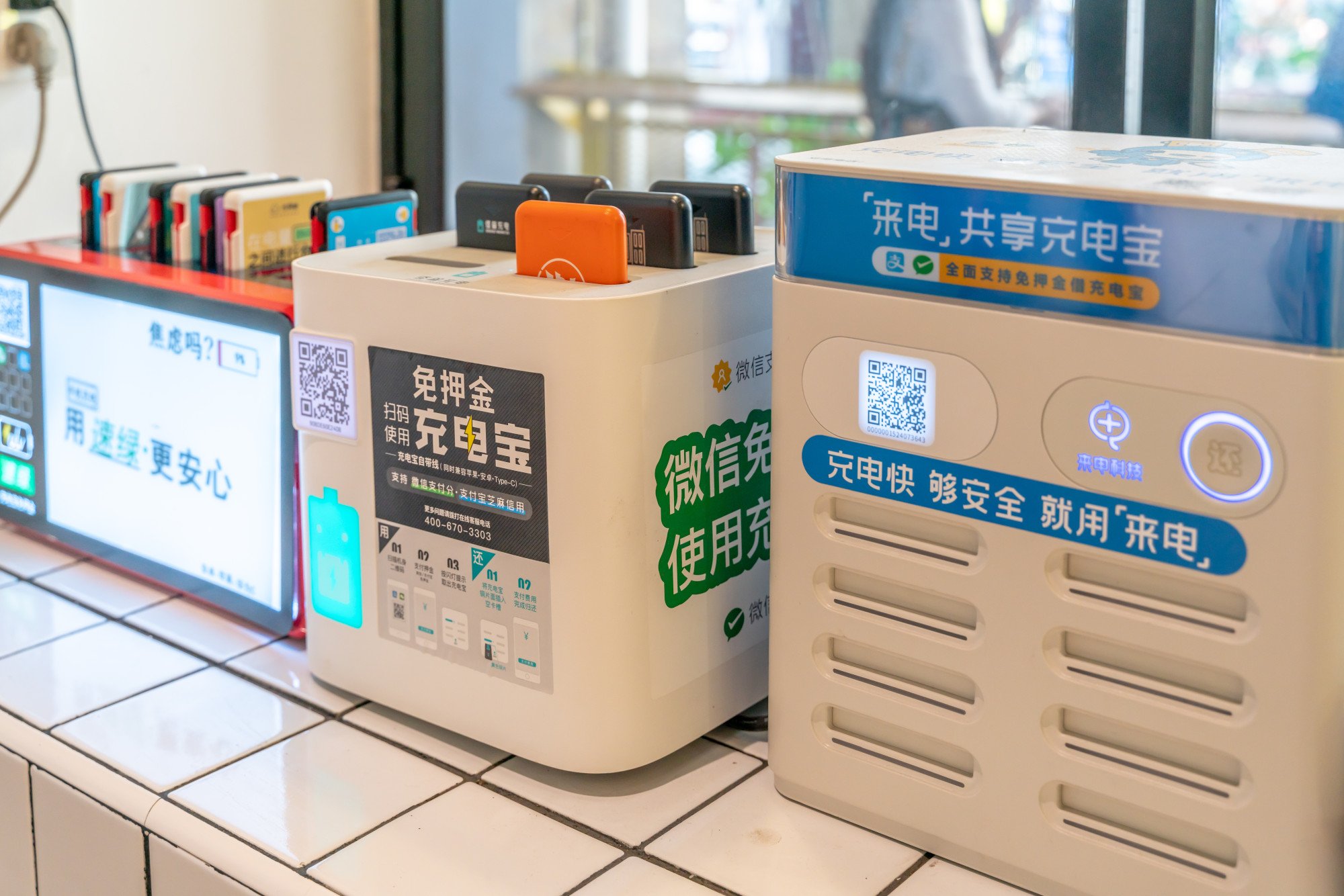
Energy Monster IPO: Chinese power bank rental firm bucks sharing economy bust with expansion initiative
- Energy Monster is China’s largest mobile device charging service provider by gross revenue in 2020, with a 34 per cent market share and 219.4 million users
- The size of China’s mobile device charging services market is forecast to reach US$16.3 billion in 2028
Shanghai-based Energy Monster, through holding company Smart Share Global, filed its application to go public on the Nasdaq stock market on Friday to the US Securities and Exchange Commission. The firm did not provide the amount it plans to raise from the IPO, according to its prospectus.
Founded in 2017 amid the rush of money into China’s sharing economy, Energy Monster has emerged as the country’s largest mobile device charging service provider in terms of gross revenue in 2020, with a 34 per cent market share, according to data from iResearch that was cited in its prospectus. The company, with revenue of 2.8 billion yuan (U$430 million) in 2020, had 219.4 million registered users at the end of last year and a network of more than 664,000 power bank rental locations across the country.
Energy Monster said its planned IPO shows that there are “ample opportunities” for service providers to grow in China’s power bank sharing sector. Power banks are not new in China and are easily affordable for many as a device costs less than 100 yuan. But the increasing use of smartphones in almost every facet of people’s daily lives in the country – from hailing cars and shopping online to paying for purchases at convenience stores and sharing videos on social media – has made power bank rentals a lucrative business.

Citing iResearch data, Energy Monster said the size of China’s mobile device charging services market is forecast to reach 106.3 billion yuan in 2028, up from 9 billion yuan in 2020. That demand will be fuelled by pervasive smartphone usage, dependence on mobile apps and the adoption of 5G mobile technology, according to its prospectus.
“The prevalent low-battery anxiety is the biggest pain point nowadays,” said Shanghai-based independent analyst Zhang Kun. He indicated that the rise of compelling apps, such as those for short video-sharing, has contributed to the demand for a quick smartphone or tablet charge anywhere people go in the country with the world’s biggest internet population.
Power bank sharing has also become big business in China, as more of the country’s internet giants started investing in many start-ups in the market. There were more than 520 power bank sharing-related companies in the country as of December last year, with most of them formed during or after 2017, according to enterprise data provider Tianyancha.
In December 2019, Energy Monster raised US$77.5 million in its Series C financing round led by Softbank Ventures Asia. Other investors in that round included Hillhouse Capital, Goldman Sachs and Shunwei Capital.
China’s power bank sharing industry took a hit from Covid-19, but it’s not out of juice yet
Service providers in this sharing market segment mainly offer table chargers – installed in restaurants, bars and convenience stores – and portable power banks that users rent and take away by scanning the QR code.
The expenses for buying shared power banks are also lower than the cost of buying shared bikes. Still, IPG China chief economist Bo Wenxi said the power bank sharing market’s “biggest problem” is that the low capital requirement “could lead to unhealthy competition in terms of lower prices”. That means the key to maintaining a sustainable operation is to “occupy a large share of the market”, he said.

